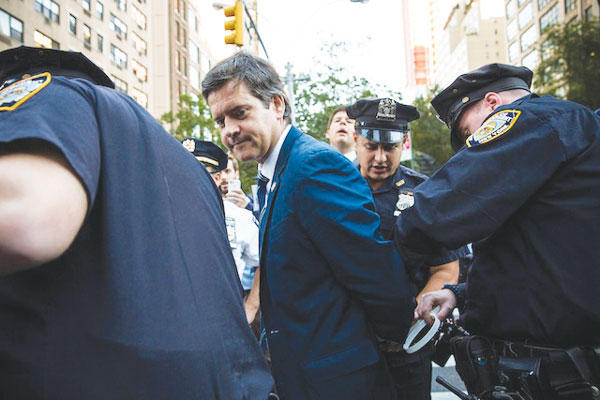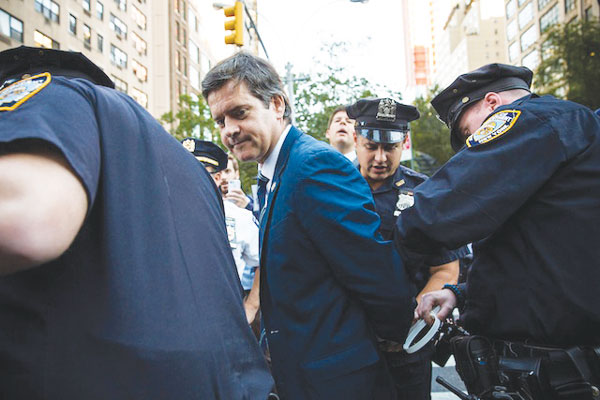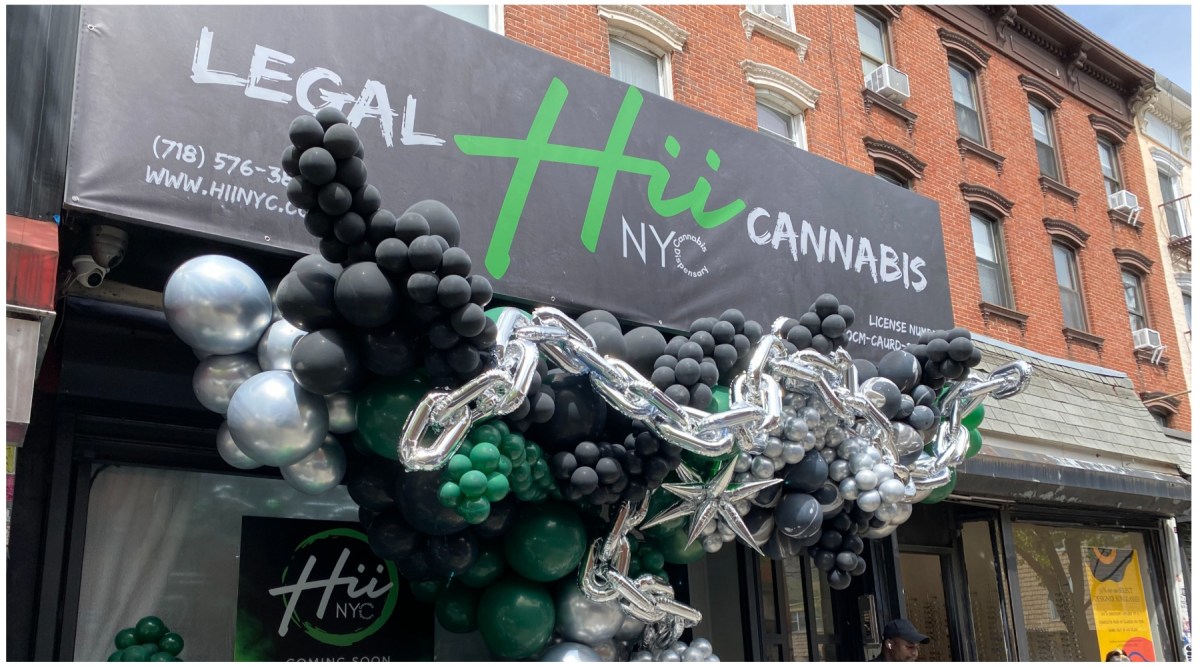
BY LINCOLN ANDERSON | State Senator Brad Hoylman was arrested Wed., Sept. 18, along with AIDS activists in a protest action at the United Nations.
On the opening day of a U.N. General Assembly meeting focusing on poverty and public health, Hoylman joined Charles King of Housing Works and other advocates in an act of civil disobedience to draw attention to the millions who lack access to lifesaving antiretroviral treatment because wealthy countries are cutting back on funding.
They brought traffic in front of the U.N. to a halt and demanded that President Obama and other world leaders back a financial transaction tax, also known as a “Robin Hood Tax,” to generate revenue that could fund universal access to H.I.V. treatment, care and prevention, as well as other urgent priorities, such as climate change, healthcare, higher education and public transit needs.
“There is so much good this small financial transaction tax could achieve, and particularly in the fight against H.I.V./AIDS,” said Hoylman, whose district has one of the state’s highest concentrations of people living with H.I.V.
“Just here in New York State, a modest increase in funding could help eliminate new infections by increasing access to treatment, expanding targeted prevention efforts, ensuring stable housing for vulnerable people with H.I.V., and making pre-exposure and post-exposure prophylaxis available to those who need it.
“We need the U.N. and world leaders to commit to the Robin Hood Tax,” Hoylman urged, “so we can get to zero new infections in New York and around the world.”
Every day in New York State, roughly 11 people are newly diagnosed with H.I.V. and five people die from the disease.
Globally, access to H.I.V./AIDS treatment has fallen short of the U.N.’s Millennium Development Goal: 10 million people are receiving the treatment today while about 26 million people could benefit from the treatment. Advocates agree that a lack of financial resources is the biggest obstacle to achieving the goal of zero new H.I.V. infections.


















